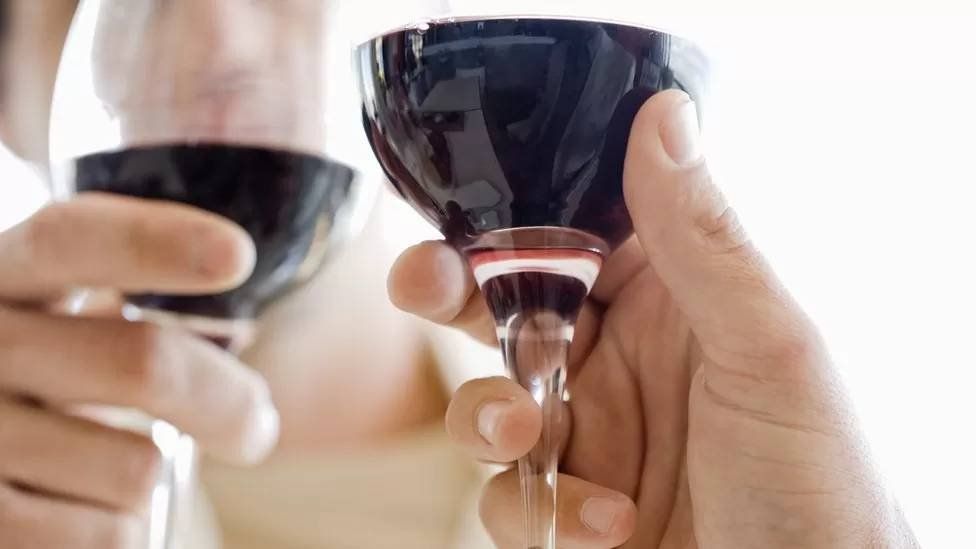8 minutes ago
About sharing
The minimum unit price (MUP) for alcohol in Scotland is to be raised from 50p to 65p, it has been announced.
Deputy First Minister Shona Robison announced the plan on Thursday in a statement to Holyrood.
This means shops in Scotland will not be able to sell a bottle of wine for less than £6.09.
Scotland was the first country in the world to set a minimum price at which alcoholic drinks can be sold when the policy was introduced in May 2018.
A sunset clause in the legislation mean the current regulations will expire at the end of April.
The price hike will be subject to parliamentary approval.
Groups representing the off-licence trade are opposed to any increase in MUP, while alcohol charities are supportive and say the minimum price needs to be increased due to inflation.
Ms Robison announced the plans in the place of the former Health Secretary Michael Matheson, who resigned on Thursday morning.
She said the increase was due to inflation and more action being required to combat alcohol-related health problems.
“I’m clear that alcohol continues to cause significant health harm to too many people in this country,” she said.
“We, as a government, are determined to do all we can to reduce alcohol harm.”
The plans will be put to the Scottish parliament on 19 February and the new minimum price will come into effect on 30 September.
Ms Robison said research suggested that there would not be a significant impact on alcohol businesses.
However Scottish Conservative health spokesman Dr Sandesh Gulhane said MUP was not a “miracle cure” and “simply punishes responsible drinkers”.
“As a practising GP, I am well aware of the plight of alcoholism in Scotland,” he said. “However, it is clear that MUP is not reducing alcohol-related deaths as the SNP are claiming.
“What is perhaps most concerning is the report from Public Health Scotland that highlighted that problem drinkers are choosing to skip meals in order to buy alcohol.
“I am deeply concerned that the deputy first minister did not address my concerns on the failure of MUP to reduce alcohol-related deaths and help dependent drinkers.”
GMB Scotland, representing members across the drinks industry, urged the Scottish government to reconsider the hike.
It warned that the policy was already risking jobs and investment and questioned its “unproven” health benefits.
Minimum unit pricing (MUP) is not a tax and does not generate income for the government.
Instead, it aims it to reduce the availability of cheap alcohol sold in shops and supermarkets by setting a minimum price.
The drinks industry was consulted over the summer on the possibility of raising MUP, including one option of an increase to more than 80p.
A Public Health Scotland study published in June found that the scheme had helped to reduce alcohol-related health inequalities.
Alcohol deaths
Based on comparisons with England, it estimated there were 13.4% fewer deaths related to alcohol than would have happened without the policy, as well as 4.1% fewer hospital admissions.
However, it reported “limited evidence of any reduction in consumption” among people with alcohol dependence.
Ahead of the statement, Alcohol Focus Scotland called on politicians to increase the MUP. It said positive effects of the scheme would be “reversed” if the price was not raised.
Scottish Health Action on Alcohol Problems (Shaap), which represents front-line doctors, had also called on politicians to increase the MUP.
It came after a study by the University of Sheffield suggested the policy had become less effective due to inflation. The report, published in September, found the original 50p price was then equivalent to 41p.
It also said heavier drinkers increased their alcohol consumption during the Covid pandemic, cancelling out some of the beneficial impacts.
Measuring the impact of a health policy on a whole population is not an exact science and the evaluation period included the pandemic which saw an increase in deaths from alcohol consumption.
But Public Health Scotland compared data from Scotland and England estimating that the number of deaths wholly attributable to alcohol was 13% lower with the policy than it would have been without.
A minimum of 50p per unit was set in 2018 and campaigners have argued that, as it has fallen behind inflation, the health benefits of that minimum price have been eroded.
So ministers have been considering a range of options, concluding that 65p per unit is the optimal price, because it should avert more deaths and reduce the number of people drinking at hazardous or harmful levels, without a significant impact on the industry.
However, those working with the most vulnerable drinkers say price is only one factor, and it is vital that other services, ranging from mental health support to housing to rehabilitation, are enhanced rather than cut back.
Related Topics
8 minutes ago
20 September 2023
22 November 2022
28 January 2020
